Add new comment
George Rawlings had the opportunity to work in the international oil fields when his sister married an Englishman and got Rawlings a contract with the Deep Well Tool and Boring Company. His previous work with cable tools on the construction of the railway in Northern Ontario gave him the experience he needed to do well on his first contract to Egypt, beginning in 1910.
Rawlings had to start out at the bottom ranks of the drilling crew working as a tool dresser but his good behaviour soon had him managing his own rigs. Conditions in Africa were somewhat rough. Everyone on the crew got malaria, despite sleeping in tents of fine mesh to shelter them from the insects. Perhaps this was the reason why most of the crew were heavy drinkers, a fact which would benefit Rawlings. Some of the men began to act up due to their drinking and a lack of supervision. When the big bosses came from England to inspect the rig, they shut down production and sent everyone home, except for Rawlings who they promoted.
From there, Rawlings travelled to Lima, Peru and finally onto Ecuador where he retired from the international oil fields in 1932. South America proved to be a bit more comfortable than Africa. Although the houses were small, there were many locals eager to work as kitchen staff or to run errands for the price of a meal. The International Drillers even had some of the first cars in South America, although for the most part they rode on horses to and from the fields.
Interview with Stewart Rawlings
Video clip. Stewart Rawlings describes the process of shipping bulldozers to Ecuador where his grandfather drilled for oil in the 1920s.
Duration - 02:14 minutes - Transcription
Stewart Rawlings, George's grandson, describes how on one occasion his grandfather rode out to the job site and worked on pulling casing which lined the oil well, keeping the debris out. The casing was stuck and the well would have to be abandoned, so Rawlings rode back to the camp to deliver the news to his boss. He said, "We pulled on the casing and she won't come." And the boss responded, "You didn't pull hard enough." With that, Rawlings rode back out to the rig. Knowing that the company boss was being stubborn, he decided to prove a point. He revved the engine of the pulling rig as high as it would go and told everybody to clear out. He attached a rope to the clutch of the engine and once he was safely outside of the rig, he yanked on the rope to put the engine into gear. There was a great shudder as the engine pulled the cable tight, trying desperately to haul the stuck casing from the well. Suddenly the entire derrick crumpled and fell over. Once again, Rawlings rode to the camp office and said to the boss, "Well, I pulled the derrick in." And the boss said, "I'll build you another derrick that you won't be able to pull in." And he sent out a crew to build another rig.
Upon his return to Canada in 1932, Rawlings joined up with his father-in-law forming the Stover and Rawlings drilling company which continued to operate until the 1990s.



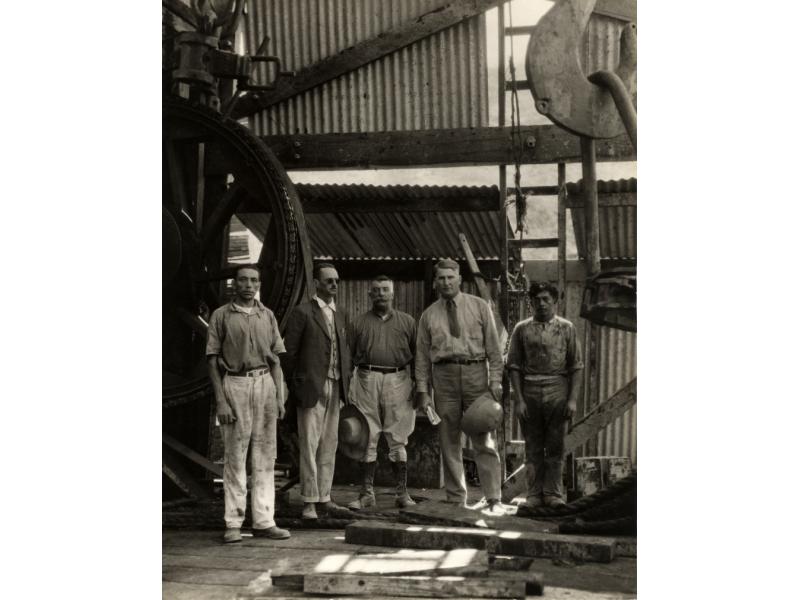 George Rawlings, second from Right.
George Rawlings, second from Right. 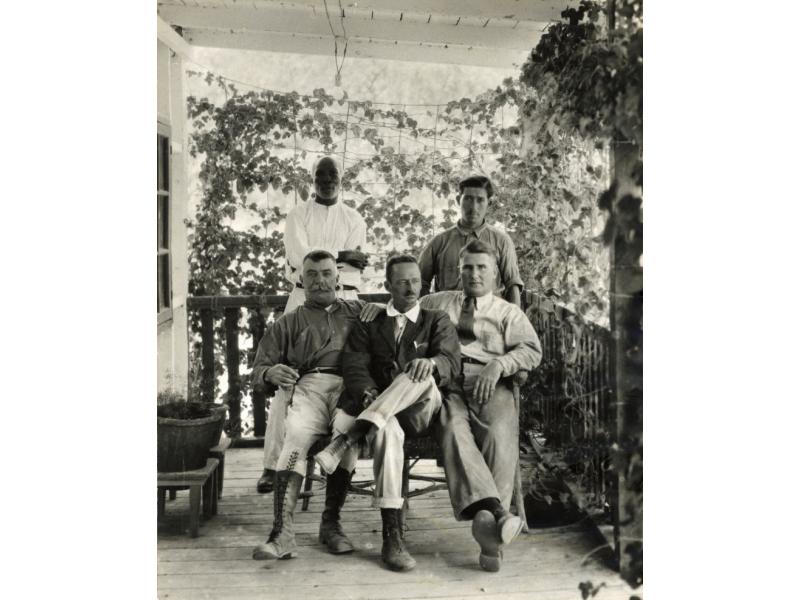 George Rawlings, front right.
George Rawlings, front right. 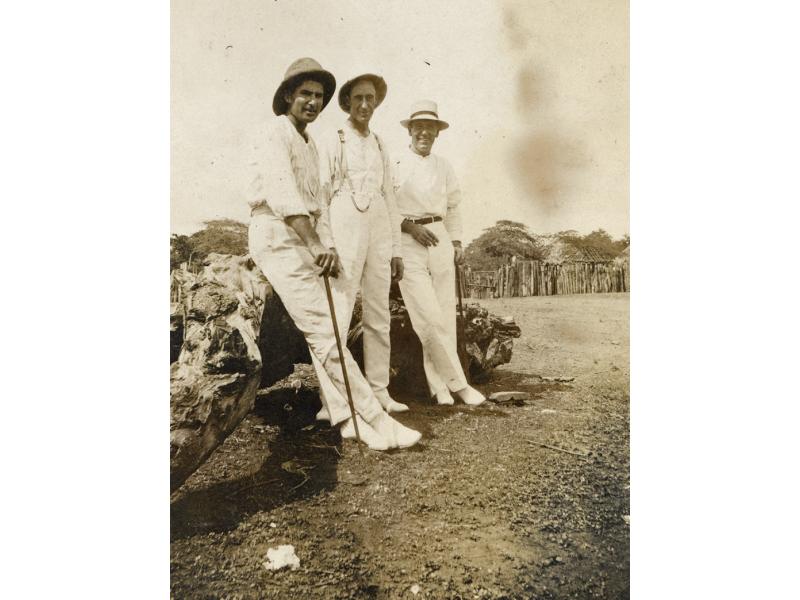 George Rawlings, left, wearing a pith helmet to keep him cool in the sun.
George Rawlings, left, wearing a pith helmet to keep him cool in the sun. 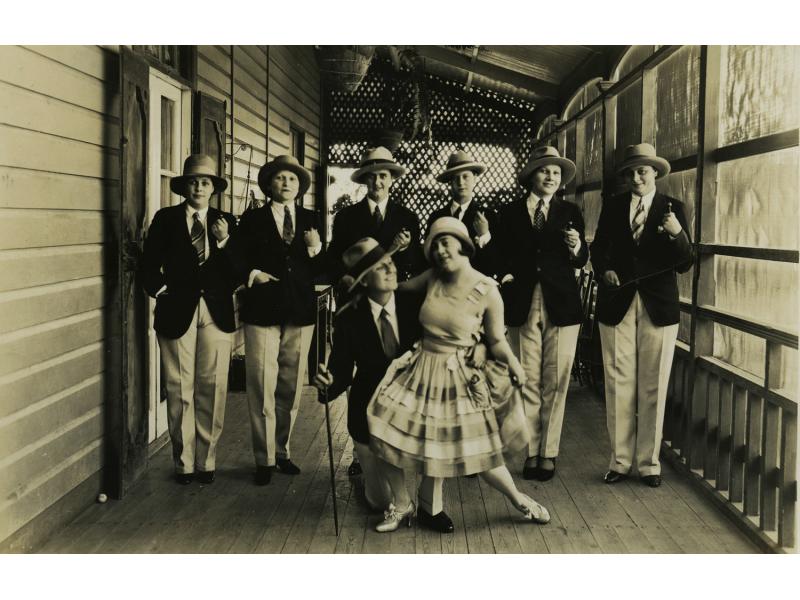 Ball in Negritos, Peru, 1927. Marie Rawlings, wife of George Rawlings, second from the left.
Ball in Negritos, Peru, 1927. Marie Rawlings, wife of George Rawlings, second from the left. 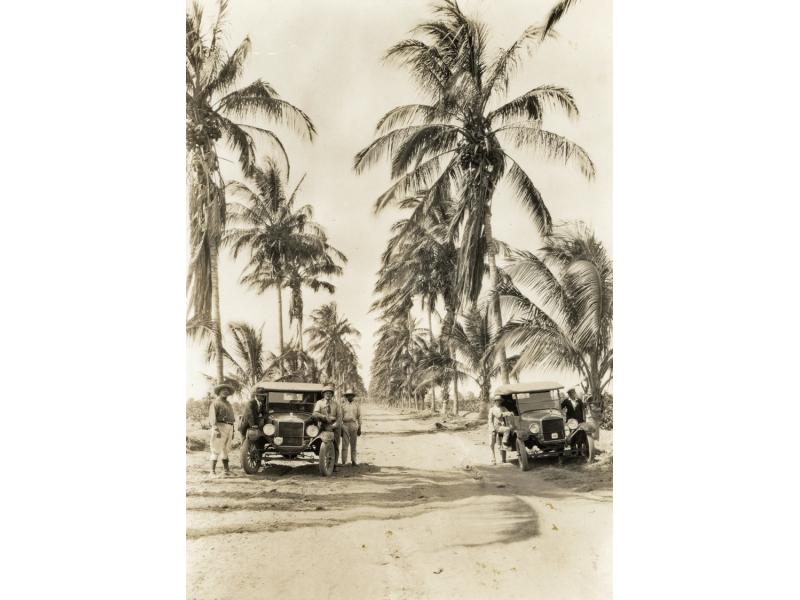 The Oil and Gas workers owned some of the first cars in South America.
The Oil and Gas workers owned some of the first cars in South America. 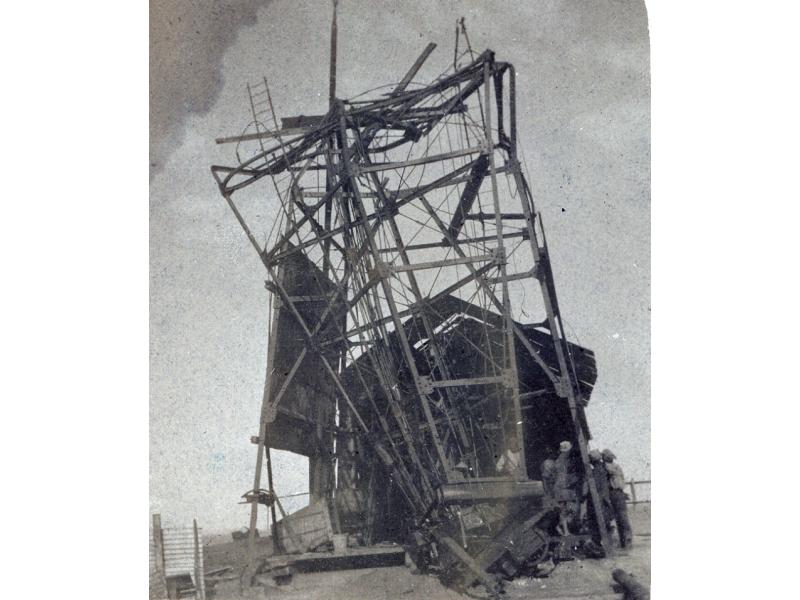 Crumpled rig which Rawlings broke trying to pull casing in Ecuador.
Crumpled rig which Rawlings broke trying to pull casing in Ecuador. 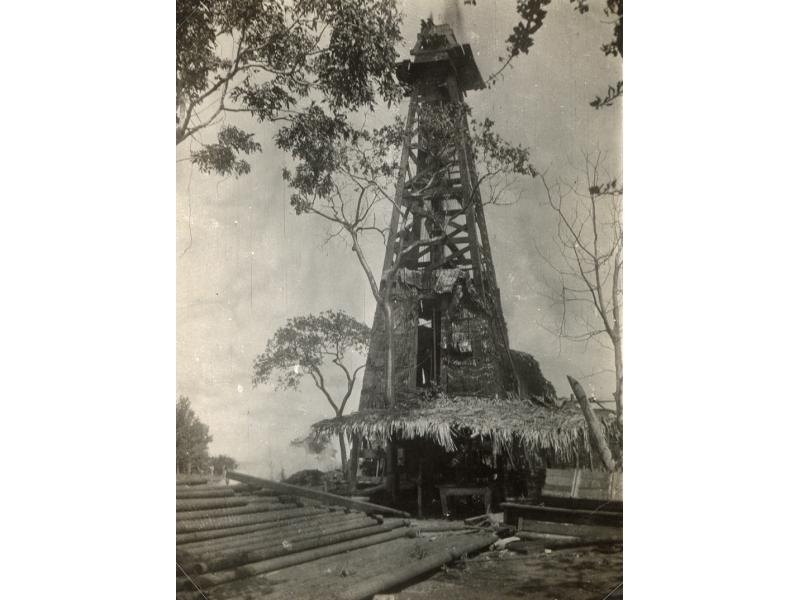 In South America, the derricks were thatched to make them bearable in the afternoon sun.
In South America, the derricks were thatched to make them bearable in the afternoon sun. 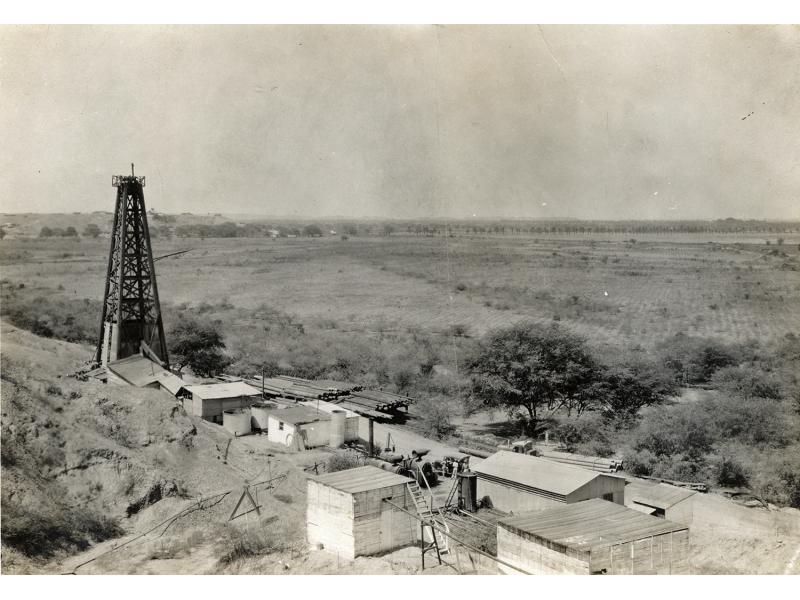 Deepest well in South America in 1927 at 6828 feet. Located in Peru.
Deepest well in South America in 1927 at 6828 feet. Located in Peru. 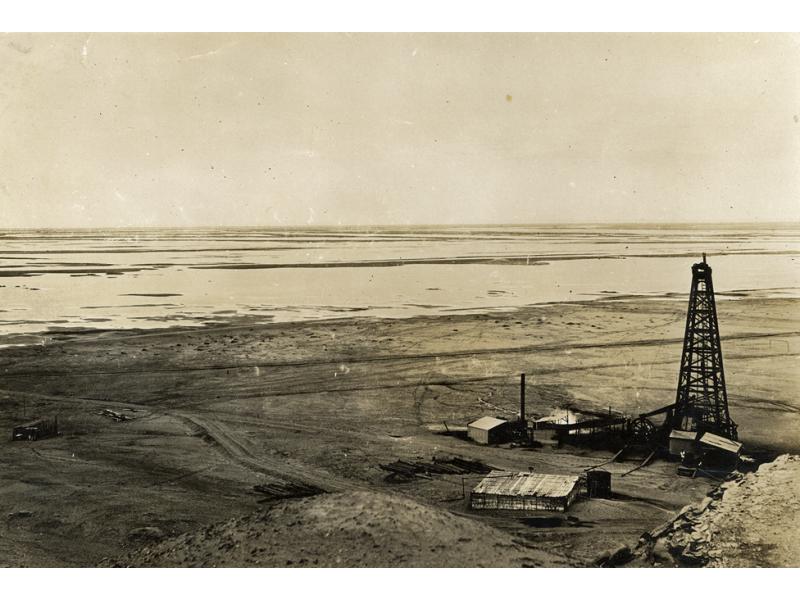 Well by the sea in Peru.
Well by the sea in Peru. 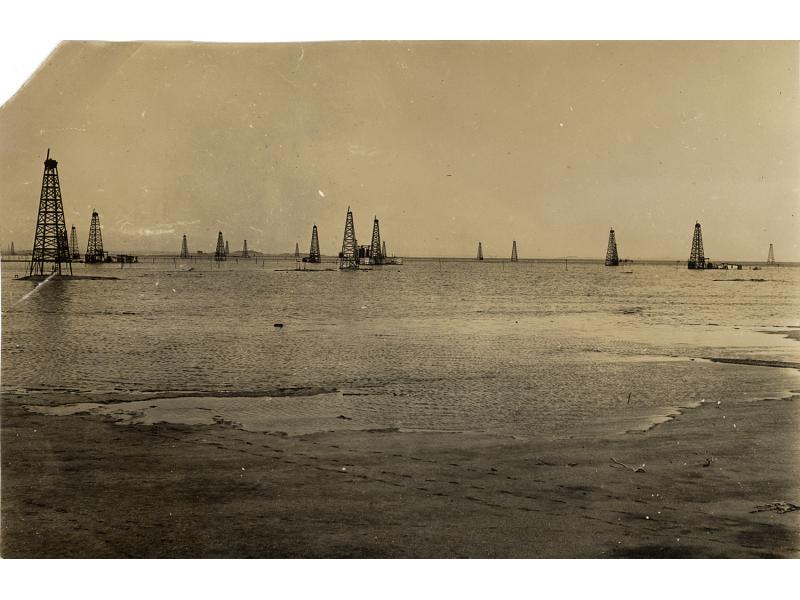 The tide coming in over oil wells in Venezuela, likely the Maracaibo Oil Field
The tide coming in over oil wells in Venezuela, likely the Maracaibo Oil Field 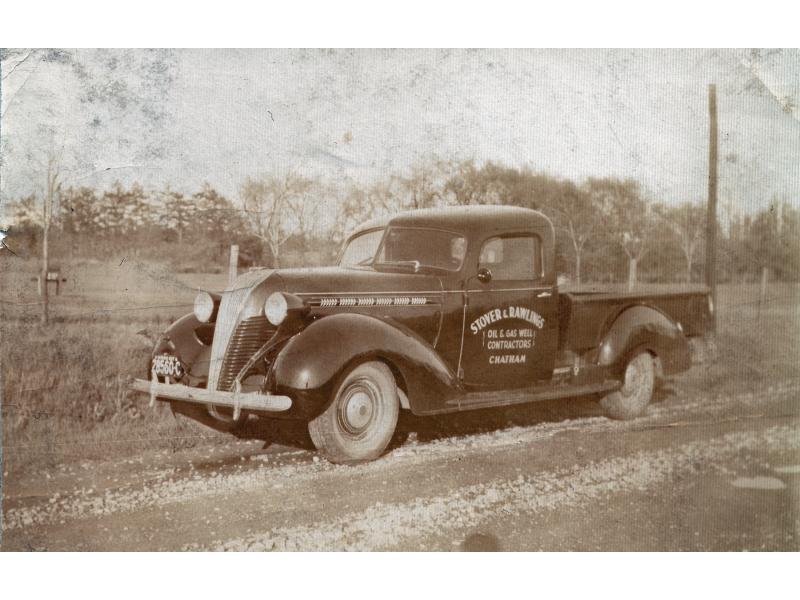 After his return from the international oil fields, George Rawlings joined his father-in-law's company.
After his return from the international oil fields, George Rawlings joined his father-in-law's company. 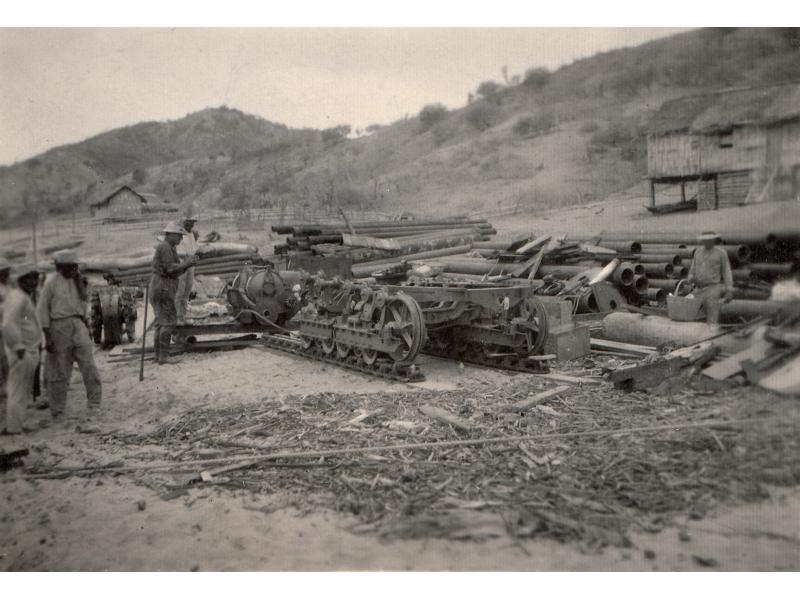 Putting a Holt tractor together. Back of the photo reads "Gold Coast Africa". George Rawlings is standing to the left of the tractor, looking at his hands.
Putting a Holt tractor together. Back of the photo reads "Gold Coast Africa". George Rawlings is standing to the left of the tractor, looking at his hands. 







